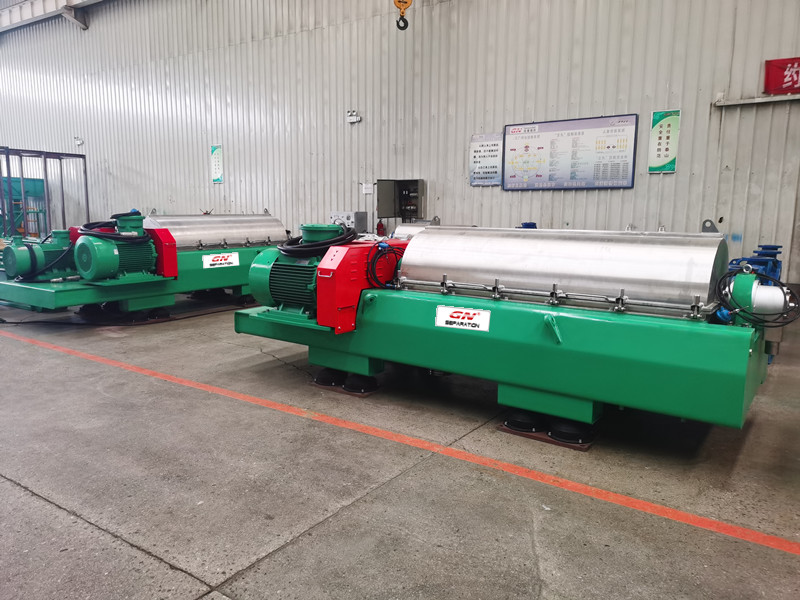Delving into industrial processes, we often encounter the unsung heroes who play pivotal roles behind the scenes. Among these, decanter centrifuges stand out as comprehensive solutions for solid-liquid separation. Integrating decanter centrifuges for solids control spans various sectors, marking them as essential tools in modern production and environmental management. Their ability to increase efficiency and maintain quality standards has cemented their status as invaluable assets in various industries.
Introduction to Decanter Centrifuge Technology
The mechanics behind a decanter centrifuge involve an intricate balance of rotational speed and gravitational force to separate solids from liquids efficiently. This is achieved through a rapidly spinning drum, known as a bowl, and an internally housed screw conveyor, which together enforce the segregation of materials. Initially introduced to assist in the food processing sector, centrifuge technology has evolved markedly over time, expanding its reach to numerous other industries. Its versatility lies in the customizable parameters, such as rotational speed and design, which can be tailored to specific industry needs. Solids control plays a crucial role in ensuring the efficiency of decanter centrifuges by managing the solid particles within the process stream, enhancing separation performance, and prolonging equipment lifespan. Whether in water treatment, pharmaceuticals, or energy exploration, decanter centrifuges offer a dependable approach to handling materials.
The Role of Centrifuges in Environmental Management
Regarding environmental conservation and management, decanter centrifuges are potent tools for preserving and recovering resources. They are particularly effective in sludge dewatering processes, where solid waste must be separated from sewage treatment plants’ water. The outcome is two-fold – the purified water can be returned to nature or reused, and the separated solid waste is often repurposed or disposed of in a more environmentally friendly manner. However, the integration of centrifuge technology presents a dichotomy: while contributing significantly to waste reduction and resource optimization, it can be energy-intensive. Hence, the design and operation of these systems are continually refined to balance performance with energy consumption.
Decanter Centrifuges in the Food and Beverage Industry
Centrifuge technology is a staple in the large-scale production of food and beverages, where consistency and hygiene are paramount. From extracting palm oil to clarifying juices and wines, centrifuges ensure product quality while significantly increasing output. They underpin the food industry’s efforts to meet high safety standards, removing contaminants and bacteria without heat, which can often compromise the quality of a product. In the brewing industry, centrifuges remove yeast and other solids from beer without affecting flavor, improving clarity and stability. These instances underscore the importance of separation technology in the food sector and highlight the role of centrifuges in supporting global food supply chains.
Oil and Gas Industry: Optimizing Production with Centrifuges
The oil and gas industry’s operational requirements demand equipment that can withstand rigorous demands. Decanter centrifuges meet this challenge head-on, facilitating the separation of drilling mud from solid cuttings. This streamlines the drilling process and enables the reuse of drilling mud, which is economically and environmentally advantageous. Furthermore, centrifuges also manage oil separation from produced water, protecting the environment from potential pollution. The centrifuge’s role is thus crucial in minimizing waste, maximizing resource recovery, and contributing to the industry’s pursuit of sustainability.
Biotechnology and Pharmaceutical Applications
The precision required in the biotech and pharmaceutical industries finds an ally in the reliability of decanter centrifuges. These machines are fundamental to separating and purifying cell cultures, proteins, and other minute biological entities that form the basis of advanced medical treatments and research. They also play a part in producing and refining vaccines, enzymes, and other critical healthcare products. The high standards of purity and sterility maintained by centrifugation techniques are crucial for patient safety and the efficacy of treatments and thus embody the intricate connection between technology and well-being.
Choosing the Right Centrifuge for Your Industry
Navigating the choice of the correct centrifuge for an industrial application requires a thorough understanding of specific industry requirements. Key considerations include:
- The material is to be processed.
- The desired throughput.
- The environmental conditions of the facility.
It’s also essential to anticipate future needs and scalability to ensure the equipment can adapt to evolving production demands. By carefully evaluating these elements, businesses can ensure they invest in a centrifuge system that fits their current needs and offers the flexibility to grow and change as their operations do.
Conclusion: The Indispensable Value of Decanter Centrifuges
Throughout the many industries where material separation is essential, decanter centrifuges have proven to be indispensable tools. They demonstrate the power of technology to not only assist in achieving commercial objectives but also in addressing broader issues such as environmental sustainability and lead the way toward a future where efficiency, precision, and ecological responsibility go hand in hand. Decanter centrifuges will remain a technology to watch, evolve, and celebrate in the continuing narrative of industrial advancement.

